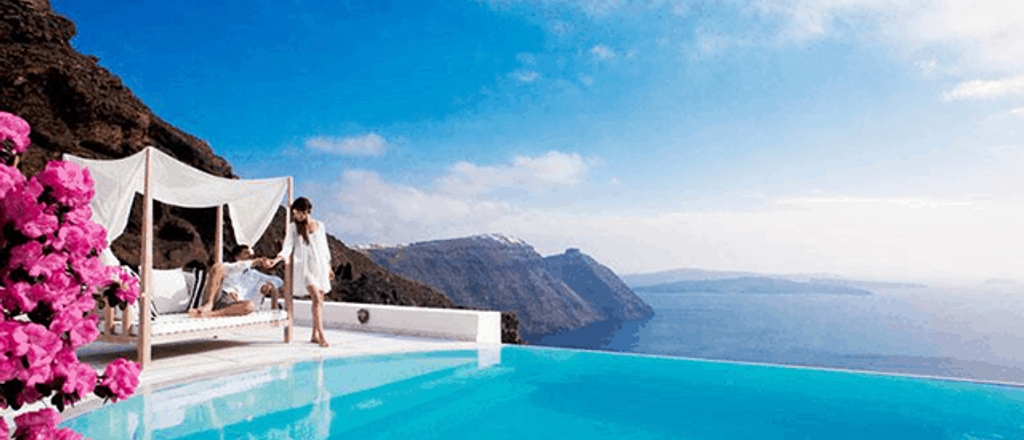- Home
- News And Events
- What’s Going On
- Ie Premium Travel Barometer
IE Premium Travel Barometer

The main challenge facing both the premium and non-premium travel industries today is being able to ensure access to online services abroad, according to the IE Premium Travel Barometer 2016 From Experts to Experts, a report drawn up by the IE and Mastercard Observatory on the Premium Market and Prestige Products. Of the sample of experts, 45% were Spanish and the remainder international.
The participating experts were from a diverse range of sectors, including consulting, the hotel industry, higher education, inbound tour operators, communication, aviation, food and drink, food and beverages, cruises, cultural and leisure management, government and non-government tourism organizations, industry associations, investment and luxury goods and services.
The digital economy is transforming all sectors and influencing how we communicate, shop, stay informed, and decide where to take a holiday. “IE Premium Travel Barometer gives us the clues as to what makes someone a premium traveler and what is important to them. Digital transformation, memorable experiences and personalization are the priorities. It’s interesting to note that these things are also priorities for premium and luxury brands in other sectors,” says Maria Eugenia Girón, director of the IE and Mastercard Observatory on the Premium Market and Prestige Products.
“The barometer’s focus is very interesting because it reflects the opinions of a great variety of industry experts from around the world,” says Jörn Gieschen, a tourism consultant and the person heading the IE survey. “This ranking of the most important challenges and opportunities in the premium travel sector is the kind of food for thought that is of great value to industry professionals when it comes to prioritizing strategies and tactics, and assigning resources within their own companies.”
The cost of guaranteeing online access continues to be a problem, along with speed and mental barriers to using apps and mobile services abroad, say the experts cited in the report. For Europeans traveling throughout Europe the situation is improving constantly, as more focus is placed on content and solutions.
Reserving services easily and spontaneously by smartphone came 5th in the ranking. This is a key issue, both ahead of a trip as well as at the final destination. Some experts say the age of the app has ended, particularly in the travel industry. According to the results of the report, there are so many apps and solutions that technological consolidation is now likely to take place, in order to simplify reservations and sources of tips for travelers on mobile devices.
Design of the experience, management and personalization of services were in 2nd and 3rd positions in the IE Premium Travel Barometer 2016, and are closely linked to each other. In the premium markets in particular, the level of personalization is essential for the success of the design, marketing and organization of experiences. Companies dedicated to lifestyle management only need very short notice to offer the premium traveler customized experiences.
But premium travelers are also learning that there is a rapid increase in the variety of experiences available online, many of which are found on global experience platforms designed with this in mind, such as websites focused on a specific interest or particular destinations. This pre-booking of experiences, which appears in the 6th position in the ranking, can be beneficial to the traveler and even form part of the experience. The most important issues related to premium travelers’ experiences during the trip itself are those related to gastronomy, food and drink (8th position), coupled with experiences related to health and a natural lifestyle, including mental health and spiritual growth (9th position).
“It is clear from the results of this survey that premium travelers are demanding more personalized services when and where they want, and for this they need, among other things, internet access,” says Eva Ruiz, director of marketing for Mastercard Spain and Portugal. “Technology is now beginning to meet these demands. At Mastercard we innovate each day to offer consumers the best possible shopping experience, regardless of where they are and what method they use, which definitely makes for greater customer satisfaction.”
Regarding brands and style, small is big, or, more specifically, there is a perception that “small is beautiful and unique.” This concept, which includes local, authentic products and services, attained a higher score than the importance of attracting more global luxury brands (25th position).
The top 10 on the premium traveler’s wishlist in 2016, in order of importance, are:
1. Online access
2. Design of overall experience
3. Personalization
4. Quality of management service
5. Booking using mobile devices
6. Pre-booking of experiences
7. “Small is beautiful”
8. Gourmet food and wine experiences
9. Return to nature
10. Spiritual experiences and possibility of disconnecting